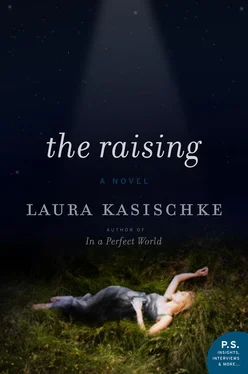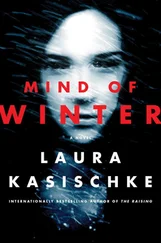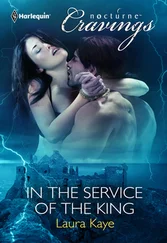“Fuck you,” Perry had said, not for the first or last time.
“Thanks,” Craig said, “but I’m not horny right now.”
It had never crossed Perry’s mind to go to college anywhere but here. All the smartest kids from Bad Axe had come to this university over the decades, and only three of them had gotten in this year—Perry, Nicole, and an obese girl named Maria, who played the harp and hadn’t spoken a word to anyone except the school psychologist, as far as Perry knew, since eighth grade, when her mother had committed suicide.
His parents, both of whom had gone to a smaller university closer to Bad Axe, were nearly beside themselves with pride. His father had painted the big cement squares of their patio crimson and gold a couple days after Perry got his acceptance letter. “This is the big time,” he’d said. “You did it, kiddo.”
It was hard for Perry to imagine an older, more formidable looking college than this—the library’s enormous pillars, the gold trim around the ceiling of Rice Auditorium, the leafy Commons with its marble benches. What could Dartmouth have that this school didn’t?
“It’s selective ,” Craig had said. “It’s private. Not a jock-ocracy,” waving his hand around at the walls of their room.
But for Perry, this was like a dream of being in college. The heavy books with their translucently thin pages. The gregarious professors and the unsmiling ones. The fat columns of the library, and the crammed stacks of books inside it.
The smell between those narrow walls of books was, Perry felt, the smell of rumination itself. Decades of reason and reflection. He checked out books that had nothing to do with the classes he was taking, just to be able to bring the heft and the scent of them back to the dorm with him. A Handbook of Classical Physics. A History of the Anglo-Saxons.
“Huh?” Craig asked. “How’d you get like this, man—all romantic about it all?”
“I don’t know, man ,” Perry said, dragging out the man in imitation of that East Coast accent. “How’d you get so fucking cynical?”
“Native intelligence. Born with it,” Craig said without missing a beat. He never missed a beat. He had a whole encyclopedia of comebacks on the tip of his tongue at all times.
“Is it a burden,” Perry asked, “being so much better than everyone else? Or is it pleasing?”
“I’m so used to it by now,” Craig said, “I really couldn’t say.”
Perry sat down on his own bed and unzipped his backpack. You could have drawn a line straight down the center of the room. Every time some piece of Craig’s laundry or a magazine or a discarded protein bar wrapper inched over onto Perry’s side, he carefully pushed it back over to Craig’s side with his foot.
“Your mom called,” Craig said. “I told her you were out trying to score some heroin, but you’d be back in an hour or so.”
“Thanks.”
“Here,” Craig said. “You can call her from my cell in the lounge if you want some privacy.” He tossed the phone, slightly larger than a matchbook and just as thin, to Perry. It had been a source of endless surprise to Craig Clements-Rabbitt that Perry didn’t own a cell phone and was dependent on the antique mounted to the wall of their room. Craig did not, himself, even know their phone number, and had only touched the telephone in the room to take calls for Perry.
“Thanks,” Perry said. He took the phone, stood, and closed the door behind him.
“Mom?”
There was no one else in the second-floor lounge, so Perry lay back on the blue couch, careful to keep his shoes from touching the cushions.
He and his mother talked about his classes, his grandfather, his father’s business—a lawn mower shop, the best one in town—and about the weather, which had been beautiful. The leaves in Bad Axe had changed dramatically already, she said, and were starting to fall, and she joked that she supposed she was going to have to do the raking now, with Perry at college.
“I can come home for a weekend,” he said, “if I can get a ride.”
“Don’t be ridiculous,” his mother said. “We can handle the leaves. You just get good grades.”
Perry was an only child—except that there’d been another, a sister before him, who’d died at birth, a baby his mother had never once spoken of to him. The only reason Perry knew about her was because his grandmother, when he was nine, had decided Perry needed to know.
Since he’d been a toddler, Perry’d had an imaginary sister whose name was Mary.
He was getting too old for imaginary playmates, his grandmother told him one day, and God knows what it must be doing to his parents, listening to him in his room, talking for hours to that imaginary girl. Unlike the other adults in Perry’s life, Grandma Edwards pulled no punches just because he was a child. She was the one who’d told him that his grandfather had been an alcoholic, and that his Uncle Benny took after him, a slobbering drunk, and that’s why he was never invited for Christmas dinner. She was the one who would, eventually, tell him that she herself was dying of bladder cancer, not “recuperating” in the hospital, as his parents had said.
So Grandma Edwards took him to the grave—a flat, shining stone engraved with “Baby Girl Edwards,” and a date that meant nothing to Perry—and that very day, his imaginary friend Mary had vanished, as if the imaginary could die as easily as the actual. Perry almost never thought about her again, except on the rare occasion that her translucently pale skin would come back to him, and the way her soft, cool, imaginary hand had felt on his, guiding it across a piece of paper, teaching him how to draw a dinosaur.
And the scent of her hair—that red tangle of curls—like warm earth.
“Ilove you, Mom,” Perry said before hanging up.
“I love you , Perry,” his mother said.
“Tell Dad I love him.”
“He loves you, too.”
A few more good-byes, back and forth, and Perry snapped Craig’s snazzy cell phone shut, rose from the couch, and headed back. A few students passed him on the way—strangers, but strangers he recognized now from the hallways, from the cafeteria. One guy, with wire-frame glasses, Perry recognized from a class, although he couldn’t remember which one. They nodded seriously, politely, to each other.
The stairwell was empty when he got there. He could hear his own steps ringing around him, and as he climbed to the fourth floor, he suddenly was struck with a terrible grieflike longing for his mother, home alone in their two-bedroom bungalow. What would she do now that their phone call was over? Call her own mother? Watch television?
And there was grief for his father, too, still at the shop. He might be trying to fix something, or sell something, or schedule some kid to work on Saturday now that Perry was gone.
He thought about his grandfather, too, sitting on the bench in the hallway of Whitcomb Manor, already looking forward to Sunday, when Perry’s parents would pick him up to go to Dumplings.
And then he was feeling sorry for the whole town of Bad Axe. The drugstore. The pizza place. The brick façades of the few, desperate businesses downtown. The strip malls at the edge of everything. The cemetery with its little flags and flowers stuck into the soft, green ground. The women at Fantastic Sam’s, staring out at the parking lot, waiting for someone with too much hair to come inside.
Homesick. Now he knew what that was. And as soon as he stepped out of the stairwell, eyes fogged with emotion, Perry realized how stupid he was being, and rubbed away his ridiculous, homesick tears. Sentimental crap. The only other Eagle Scout from his troop in Bad Axe was already in the Marines, sent off to Afghanistan. That guy had something to get teary about, not Perry.
Читать дальше












